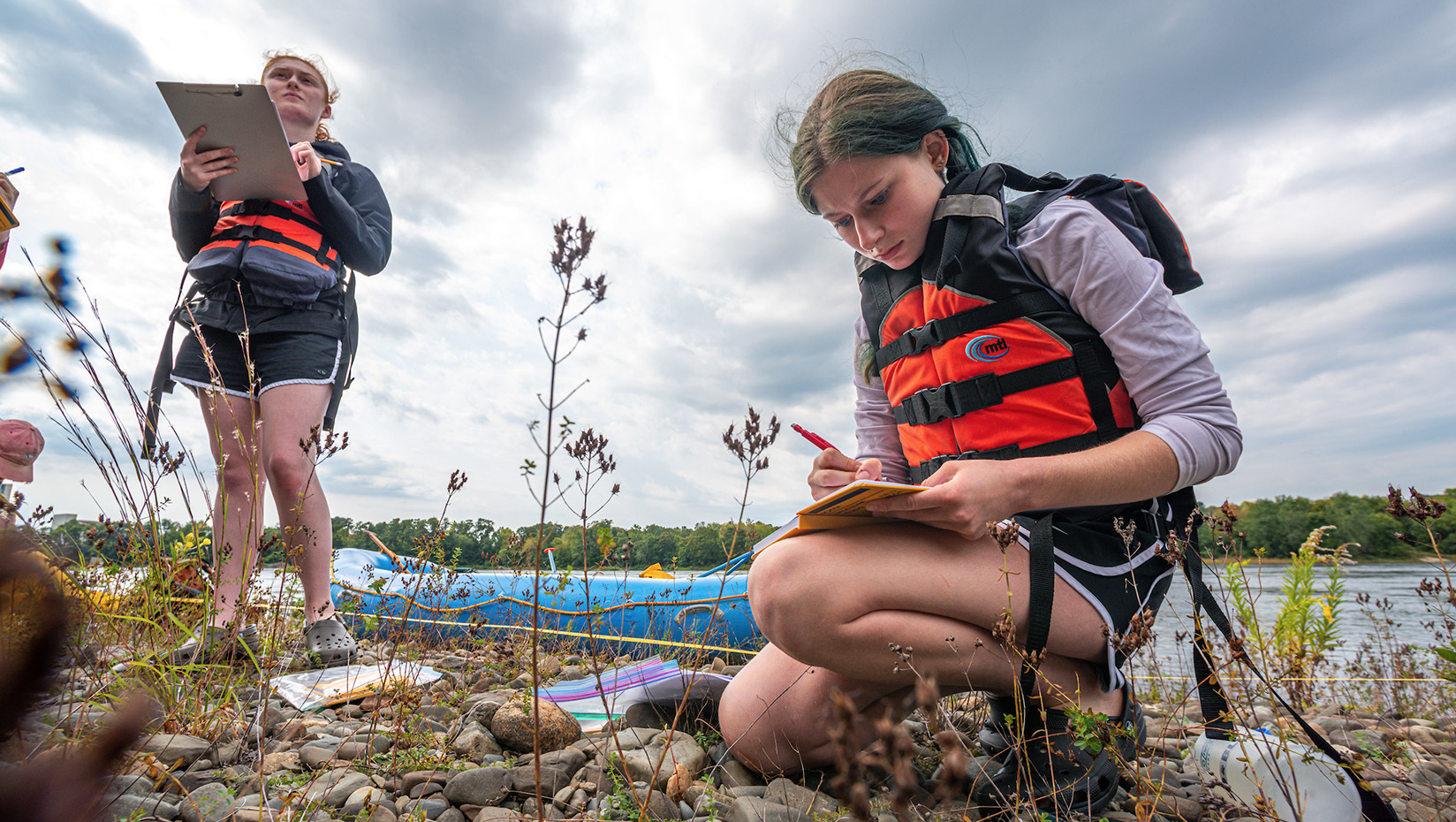
UMaine-led workshop sets stage for expansion of Research Learning Experiences statewide this year
A University of Maine-led virtual workshop about how to create Research Learning Experiences (RLEs) for first- and second-year students set the stage for their expansion to public universities across the state this year.
Linda Beck, associate dean of experiential & global education at the University of Maine at Farmington; Steve Quackenbush, associate provost and dean of arts and science at UMF; and Jason Johnston, dean of the College of Arts and Sciences at the University of Maine at Presque Isle, helped coordinate the workshop.
RLEs are one-credit courses that allow students across academic disciplines to engage in open-ended research and scholarship at the start of their college careers. These fall semester classes, designed to bring incoming students to campus a week before the start of the fall semester, challenge them to gather data and samples, conduct experiments, create art and structures, study scientific reports and literature, explore the outdoors and collaborate to solve problems, answer questions and express their creativity.
The University of Maine System created its pilot RLE program to bolster student success and retention. UMaine and its regional campus, the University of Maine at Machias, launched the RLE pilot program last semester by offering more than 30 course sections. With one year of the pilot program completed, the System now seeks to expand it to other universities.
More than 100 faculty and staff from across the System attended the Jan. 14 workshop, including some with ideas for new RLEs. They learned how to design, fund and evaluate the success of such immersive learning courses, and how to use them to advance scholarship.
The System has earmarked funds for all of its universities to offer RLEs in the fall 2022 semester, said Brian Olsen, associate provost for student success and strategic initiatives at UMaine.
“(RLEs) are a transformational way of learning,” said UMaine Executive Vice President for Academic Affairs and Provost John Volin.“Our hope is that students will transition from consumers of knowledge to producers of knowledge.”
The RLE program is a UMS TRANSFORMS initiative created in response to the Harold Alfond Foundation’s historic $240 million grant to provide new opportunities for student support, faculty development and innovative collaborative degree programs to advance Maine’s economy and workforce in partnership with the public and private sectors. UMS TRANSFORMS has also called for the System to create the Maine Graduate and Professional Center, form a Maine College of Engineering, Computing and Information Science and upgrade facilities for UMaine Athletics.
The Coalition of Life Transformative Education (CLTE) also is supporting the RLE initiative with a $25,000 grant.
More than 250 students participated in RLEs at UMaine and UMaine Machias last semester. Courses involved creating various goods with 3D printers, collecting data on the Damariscotta River Estuary from a research vessel, crafting inflatable sculptures, gardening like a medieval monk, and more.
Olsen said UMaine has approved 50 class sections for its flagship and regional campus during the 2022-23 academic year.
RLEs not only provide first- and second-year students experiential learning opportunities earlier in their studies. Olsen said students who participate in them can form lasting relationships and learn by example from juniors, seniors and graduate students who serve as peer mentors. The courses, he said, will provide students skills that will serve them throughout the remainder of their academic journeys and in their future careers.
“This is an incredible opportunity for our System,” Olsen said.
Workshop attendees spoke with UMaine and UMaine Machias faculty who conducted RLEs last year about their experiences, the lessons learned and the adjustments they hope to make.
Karen Beeftink, an associate professor of recreation and tourism management at UMaine Machias, described how she expanded her initial idea for a Bridge week program into her RLE “Outdoor Adventures and Stewardship.” During the first week of the semester, she and her students went on outdoor adventures, including hiking and an overnight camping trip, to connect with nature, local communities and each other. For the remainder of the semester, her students worked together to create a monitoring plan for the trail network on campus.
Having peer mentors, a small cohort of students and a Bridge week where they could bond and explore contributed to the success of Beeftink’s RLE, she said.
“That Bridge week was key,” she said. “I cannot stress that enough how that first week built the foundation,” for the course.
The workshop also highlighted a similar effort at the UMF: First Year Fusion.
These programs began in 2019 to offer students a variety of five-day field experiences prior to orientation, followed by an eight-week-long first year seminar. UMF offered 10 sections of First Year Fusion in 2021, including “Art and Experience in America,” “Gardening for a Change” and “Sustainability in Action,” among others.
“We decided to add an experiential component to our first year seminar,” Beck said.
Daniel Sandweiss, professor of anthropology and Quaternary and climate studies at UMaine, said he proposed an RLE for the fall 2022 semester and attended the workshop Friday to acquire information that could help make his course more successful.
Students in his RLE would search for 19th-century artifacts on campus during Bridge week through archival research, prospecting using georadar and small-scale excavation. For the remainder of the semester, they would analyze their finds and write reports about them. Sandweiss said he hopes that conducting an RLE will help him foster a stronger connection with students early in their academic careers and better understand how they learn.
Sandweiss said he found the workshop interesting and helpful for his plans, particularly when he spoke with faculty who previously conducted RLEs.
“Now I have a network to reach out to,” he said. “I think it would be very useful if in late spring, we could have another meeting with people who did it last year to get feedback on” new RLE plans.
Contact: Marcus Wolf, 207.581.3721; marcus.wolf@maine.edu
